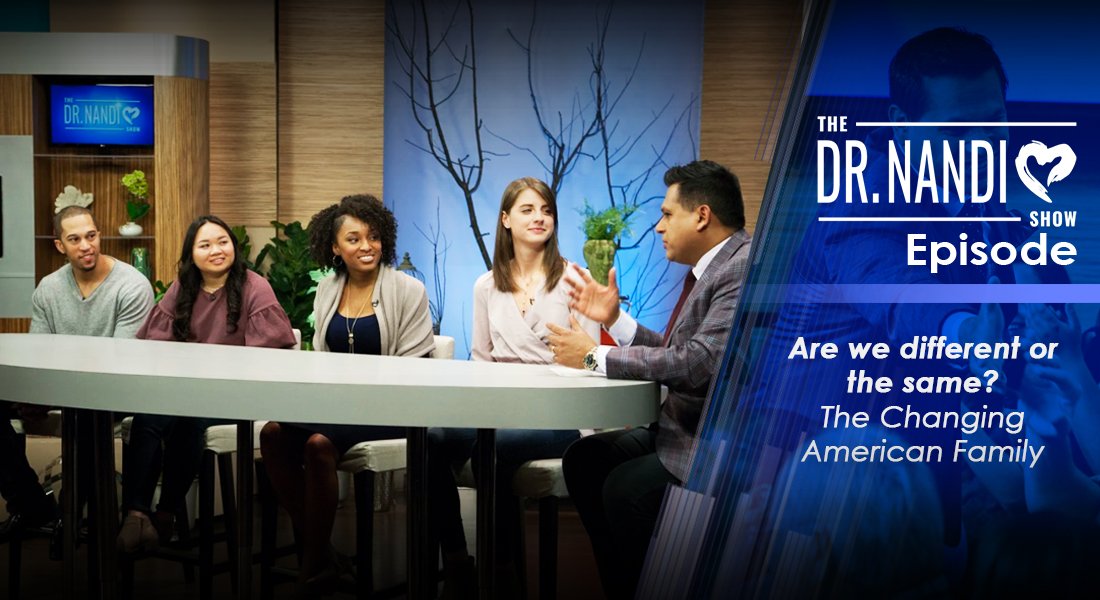
The American family is changing. In the past, diversity simply referred to a variation of the traditional family. These days diversity refers to a broad range of characteristics on which families vary. Adopted children, gay parents, interracial couples, single parents …. there are more types of families today than ever before. In this episode, we’ll take a closer look at how we’re different and the same as we explore what makes a family work.
One of my favorite returning guests, Dr. Gail Parker, has been a psychologist for 40 years. She’s not only the founder and CEO of Conscious Living, she is also a meditation teacher and coach. Dr. Parker and I discuss the amazing beauty of cultural differences and the importance of being open-minded. She says that you cannot pry open a closed mind and that people need to be curious and open to exploring differences.
Dr. Parker tells me about growing up in a segregated world, “I grew up when segregation was the law. I grew up when interracial marriages were still illegal in at least about 20 states in this country.” Dr. Parker shares how segregation hurts us and lessons we can learn from the younger generation.
Kathy and Greg Stack decided to adopt a baby after struggling with fertility issues. Meanwhile, Cody Richart found herself in difficult circumstances with a baby on the way. Fate seems to have brought them together and created an unusual family dynamic, which their child, Ethan Stack, benefits from. Kathy tells me about the random choice she and Greg made that put the wheels into motion, “We ended up going with a private adoption attorney, and it just so happened that Cody’s aunt worked for the attorney’s office, and so we had all of our letters and our photos and everything that you pull together, a book, and she brought the book to Cody.” For her part, Cody says she knew right away it was a match, “Just reading through everything and then I got to talk to them and meet them. Just at first sight, I loved them. They were so sweet and down to Earth.”
With this being an open adoption, how did it affect Ethan? “It didn’t honestly feel any different,” he tells me, “it kind of just felt like, ‘Hey, I just have another family, more people to go to, more people to hang out with, more people to see and share experiences with.’ Aside from that, it didn’t feel very different.” I love how this diverse family worked together to create an amazing experience for everyone involved.
It was love at first sight for Trevor Erickson and his wife, Tanisha Rogers-Erickson. But, for their families…there was a period of adjustment. Although Trevor and Tanisha didn’t experience a lot of push-back about their racial differences, they reveal how some of the cultural differences impacted them as a couple. Tanisha tells me, “I learned after getting involved with him they came from Poland, so that tradition was a little bit stricter on holidays and things like that.” Tanisha also talks about the time one of Trevor’s relatives said goodbye to her in a way that suggested the relationship wouldn’t last and how that made her feel. For his part Trevor remembers his first meeting with Tanisha’s family, “I think her grandmother was skeptical,” he says. In our discussion, Trevor and Tanisha share how they navigated these uncertain waters.
Nowhere is the growing acceptance and practice of multiracial relationships more common than on college campuses. These days many younger people are more exposed to different races, and likely have grown up with a favorite musical entertainer, TV show, or a graphic novel highlighting different races. An amazing group of millennials – Korie Wilson, Dionne Harris, Rachel Dazer and Brandon Boswell join me to discuss their generation’s take on diversity.
Rachel tells me differences weren’t accentuated when she was growing up. She says it was normal to simply accept everyone, “So, I don’t really look towards someone’s race. I look more towards them as a person. So, it hasn’t really played a role at all.” Korie is on the same page as Rachel, “For me, it’s more so about who the person is as an individual and not so much about their background, where they come from or their race.”
Brandon believes it’s important to stop labeling people and relationships. “We have to stop identifying it as you’re in an interracial relationship. I’m in a relationship. I’m with this person because I care about them.” He tells me that removing the race and cultural difference is the only way we can all grow together. Adding a little insight, Dionne explains why she thinks her generation is more open to differences. “I went to a very diverse high school, a very diverse college, and so we get to interact more ~ maybe older generations didn’t get that luxury.” Our lively discussion makes clear how these young people, and their peers, will change cultural attitudes for generations to come.
No products in the cart.
*These statements have not been evaluated by the Food and Drug Administration. This product is not intended to diagnose, treat, cure, or prevent any disease.
